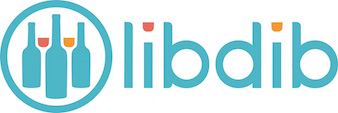LibDib Cracks the Code of Modern Three Tier Alcohol Distribution
 The most shocking thing about the new Liberation Distribution (LibDib) wholesale platform is that the idea to automate distribution of alcohol on a platform that invites everyone onboard apparently escaped the great minds occupying the middle tier.
The most shocking thing about the new Liberation Distribution (LibDib) wholesale platform is that the idea to automate distribution of alcohol on a platform that invites everyone onboard apparently escaped the great minds occupying the middle tier.
I jest. Of course American wholesalers didn’t think of the most obvious and efficient way to mitigate the distribution bottleneck for artisan wineries, brewers, cideries, and distillers. They aren’t in the business of efficient or obvious. No, it took someone who experienced first hand the absurd consequences of wholesale distribution and antiquated three-tier law to come up with a beautiful and elegant solution to bringing the growing set of artisan “Makers” to market.
Cheryl Murphy Durzy is the founder of Liberation Distribution. Having confronted the frustration of  dealing with wholesalers who either blocked the way to market for all but the largest brands or happily let producers’ products waste away in a warehouse, Durzy decided she could do it better. And she did.
dealing with wholesalers who either blocked the way to market for all but the largest brands or happily let producers’ products waste away in a warehouse, Durzy decided she could do it better. And she did.
Liberation Distribution is simple. Producers sign up and onboard their products. LibDib presents its book online. Accounts buy online and the producer delivers. LibDib takes a cut. But more important, LibDib is an equal opportunity wholesaler:
“Any ‘Maker’ who wants to distribute their products to states on the LibDib system is welcome to sign up, set their price, and wholesale. Anyone…All brands deserve a route to market”
Consider the last part of that quote: “All brands deserve a route to market.” Not “all brands deserve to succeed.” Not “all brands deserve a built in customer base.” Simply, “all brands deserve a route to market.” And it’s true. But consider that under the strict three tier system championed by Durzy’s wholesaler competitors for decades, the rule has been that no brand has the right to a route to market, let alone deserve it. Instead, the big wholesalers have operated under the mantra that only wholesalers shall determine which brands have a route to market.
LibDib is currently licensed as a wholesaler in New York and California with expansion to Illinois and other states likely in the near future.
The most important thing about LibDib is that it finally gives wineries, brewers and distillers an efficient, inexpensive and nearly risk-free way of offering their products to some of the most prestigious and important restaurants and retailers in the American marketplace. Durzy has pledged that she’ll never enforce a Franchise statute. That alone is reason for small, artisan producers to give the LibDib system a try.
Among the most impressive elements of LibDib is the elegance of the platform. Simple to use for producers and simple to navigate for accounts. The challenge, of course, is that a small, artisan distiller in Kansas using the LibDib system to offer wines at wholesale in California won’t have access to a large group of sales people on the street. But let’s face it, the big wholesalers who control most markets don’t use their sales people to market small producers anyway. And the flipside is that restaurants and retailers can order as little as a bottle or two if they just want to try it. There are no minimum purchases at LibDib.
It won’t take long for the copycats to come out of the woodwork, this idea is so brilliantly suited for today’s market of too many producers of alcohol, too few wholesalers, and too antiquated and stodgy regulations. But LibDib has a nice lead in what will be a new category of wholesalers. Durzy has spent lavishly on her platform, making it a seamless experience for producers and buyers.
But again, I have to go back to the traditional, bulky, slow moving wholesalers. How is it they didn’t start doing this a decade ago when the complaints about small producers having no path to market through the consolidating middlemen were in full swing? I’ll tell you how. It is the most obvious non-outcome of a system of distribution that for decades has been built and rebuilt around deep pocket middlemen with no interest in innovation or serving anyone but themselves despite their privileged and cozy mandated status.
It’s gonna cost them millions, if not billions down the road.
In the mean time, LibDib should become a chosen outlet for the ambitious artisan producers that want to continue to grow. There are now over 15,000 wineries, distillers, and brewers in the United States. The vast majority are small and a good many of those would love a chance to break into wholesale markets on at least a limited basis. Now they have a path.

There are a lot of examples of stogy, lethargic distribution/marketing systems in the U.S. -Health Insurance is one such system where the mechanics of operation are geared to protect political interest and large industry establishments (insurance co.). The Three Tier system, has become a protected class in a large industry who survives due to largess. Proof-what is the monopoly value of this system for government, wine industry, or the looked down upon lowly consumer. Car dealers is another example of a government/elites protected class-just ask Tesla. Now we have state protected and promoted (using licenses) cannabis business. If Wholesalers start feeling the pinch you will see an increase in political giving at local, state and federal levels. And new laws to protect at all cost the wholesaler-cost being for the wine producers and consumer. No free market here!
Yu have nailed it Steve! But the times are changing. Apple iTunes showed that to the old music labels, and Uber demonstrated that to the taxi industry.
Sounds like a broker rather than a distributor. Does LibDib take ownership of inventory? Do they own the accounts receivable?
Hi Sam, We are a full fledged distributor. We do things different when it comes to inventory; a JIT model so to speak. And yes, we do manage the entire accounts receivable process. Hope that helps and come check it out at http://www.libdib.com. Cheers!
Cheryl –
Still not sure if you take ownership of the inventory and accounts receivable – can you clarify?
Like most things that starting off as a casual discussion then turn into a labyrinth of discussion points.
Sam notes a number of discussion points that do imply that not all business discussions are of a one size fits all set of options.
1. Broker versus a distributor-maybe a distributor trying to be a broker. Maybe a modified DtC approach?
2. Inventory ownership-I am not sure in the end, if a distributor eats inventory that is a slow seller by the distributors own design/fault/lack of effort/etc. As a very small or even small wine producer I wonder how many get a call from a distributor saying we can’t sell your wine come and pick it up and give us credit? Large Distributors are exactly like large producers-they have a lot of control in relationships and pricing-because they are a monopoly relative to once a producer comes into their grasp.
3. Account receivables-A distributor owns the producer in a state, it is an arrangement that is in perpetuity. The distributor can tell a slow paying customer (restaurant, retail, wine bar, etc.) “either pay your bill current or you get no beer, wine, spirits from us, period”. That is a strong message.
4. Distributors are basically a lifetime agreement that is extremely hard to break-a legal monopoly. A winery producer is in their/distributor control relative to-terms, pricing, marketing support, and any changes in terms.
5. In a DtC conference call it was pointed out that wineries can use the otherwise significant discounts required to distributors to sell and ship direct to consumers. Shipping costs are actually cheaper than product discounts to distributors.
DtC Benefits: A. Wineries can better get market G2 by having a finger on the pulse of the consumer; B. Results and decisions can be immediate based upon firsthand gleaning of market knowledge; C. Communicate directly with the customer; D. Respond immediately to competition; E. As a producer you can control your own destiny; F. Better control of Costs.; G. Ship when product is paid for.
It does sound like the LibDib is offering an effective way for the small guy to control his costs, distribution, customize approach to each customer and deal in small volumes.
Hi Steve, thanks for the thoughtful reply. It is really interesting when you look at shipping costs vs. 30% distributor margin, DA’s, billbacks, FSA, sales rep incentives, QDs etc. That’s what I am trying to do…giving each producer a route to market and control over their own sales cycle. Cheers!
I am a small importer of South American and Spanish Wines. You have my interest.
I would like to speak with someone in your organization to answer questions that i have.
Thank you,
Richard